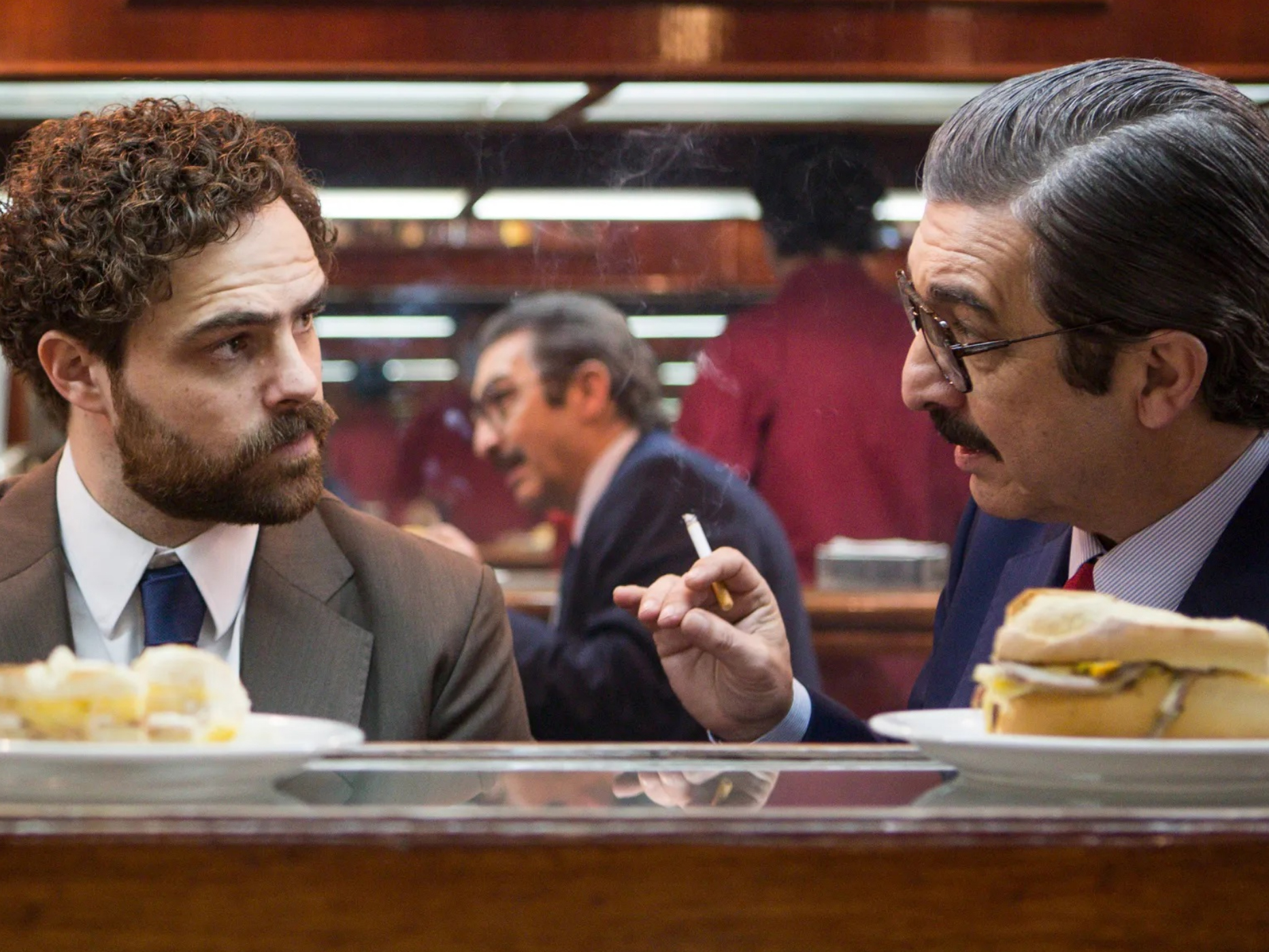
- Golden Globe Awards
Argentina, 1985 (Argentina)
Argentina, 1985 is a courtroom drama that depicts the true account of how a public prosecutor and his team took the country’s military leaders to court for crimes they committed while the country was under a dictatorship, from 1976 to 1983. A David and Goliath scenario, The Trial of the Juntas was a landmark case, hard-fought by attorneys Julio Strassera (Richardo Darin) and Luis Moreno Ocampo (Peter Lanzani). It was not only a portentous moment in time for Argentina but for the world.
Director Santiago Mitre (Paulina) merges archival footage and testimonies from some of the 800 victims who were abused, some of whom described the kind of acts of violence they endured. Their treatment was as brutal and inhumane as it gets.
The film was screened at the Soho Hotel in London followed by a Q and A. In attendance was director Santiago Mitre, lead actor Ricardo Darin as well as supporting actor Peter Lanazani. Though the film’s events date back nearly fifty years, Mitre sees the issue is as relevant and timely today as it ever was.
“It is a film that works with issues of enormous importance today, such as the construction of a democracy, how it was built, [and the creation of] democratic values after a dictatorship as atrocious as the one that happened in Argentina, through justice. And I think we are living in a world where there is so much division within society, not only Argentine society, but I think the same thing happens in many places around the world,” he says. “I think that this trial symbolized the possibility of the union of a very wounded country, after a democracy, through something that was good. And I think that this is a symbol that endures and that challenges us Argentines now, and that can challenge many people from different parts of the world.”
Darin talks about taking on the responsibility of depicting such an attorney, regarded as a bona fide hero of Argentina. He played Strassera as a curmudgeonly father of two whose sense of humor was never far from the surface, despite the gravity of the threat, the potential danger he and his family faced.
“I had the opportunity to find out about him through Santiago, and of course, I did some light research, honestly, [for the purposes of learning] on his way of expressing himself, through interviews he had given for television, radio, and newspapers. And during the process of filming, I began to be more and more interested in his personality. I was lucky, it must be said, to meet people who had worked with him, who had known him, who had crossed paths with him. That fed me, nourished me with aspects and characteristics and anecdotes of his personality, such as his sense of humor, which was acid, by the way,” Darin said, chuckling.
Mitre adds, “We did a very long investigation, nearly two years, in which we spoke with people who were involved in the trial in all possible aspects, journalists who covered the trial and also with members of the Prosecutor’s Office,” he says. “Almost all those young people who are represented in the film today are adults who continue to work in justice in different roles, and they were a source of inspiration and collaborators in information. It was very important to me to understand — not only the facts, which were something easy to understand through the files — but to understand the sensations, the fears, and how they felt because this is a film that had to portray people going through an extraordinary situation.”
Without being heavy-handed, Mitre’s Argentina, 1985 is a heartfelt and compelling film that melds entertainment and education. Surprisingly, even many Argentines weren’t aware of all the details. Mitre nods. “We screened the film in Argentina and a lady came up and congratulated us. She hugged the whole team, and at one point she took me aside and said, ‘Thank You. This film clarified many things that I did not understand before.’”